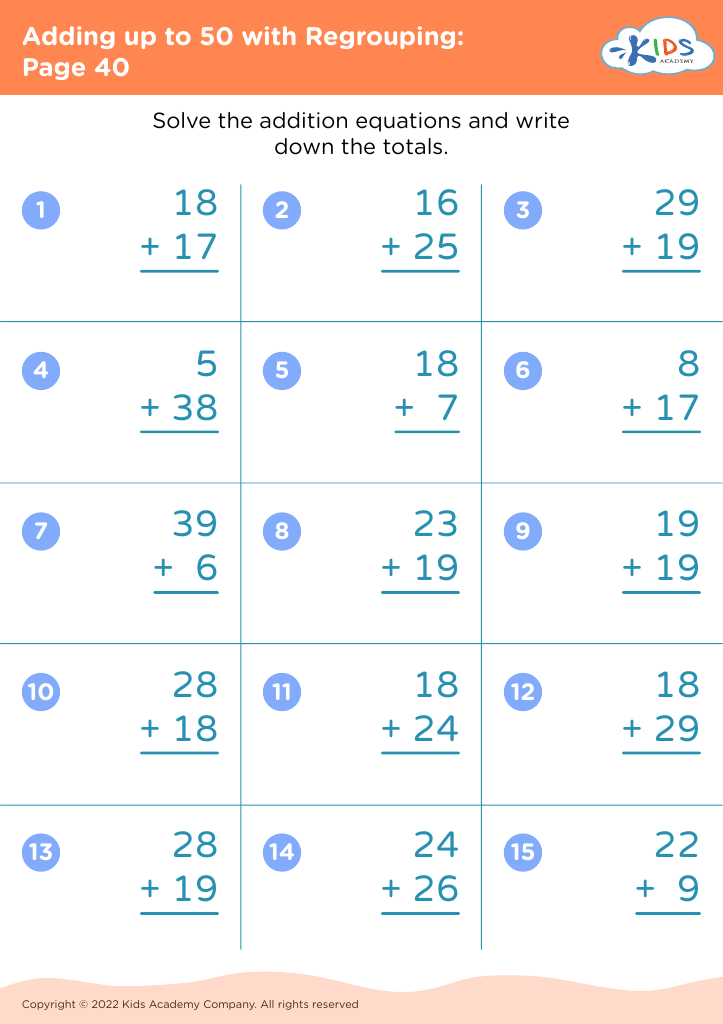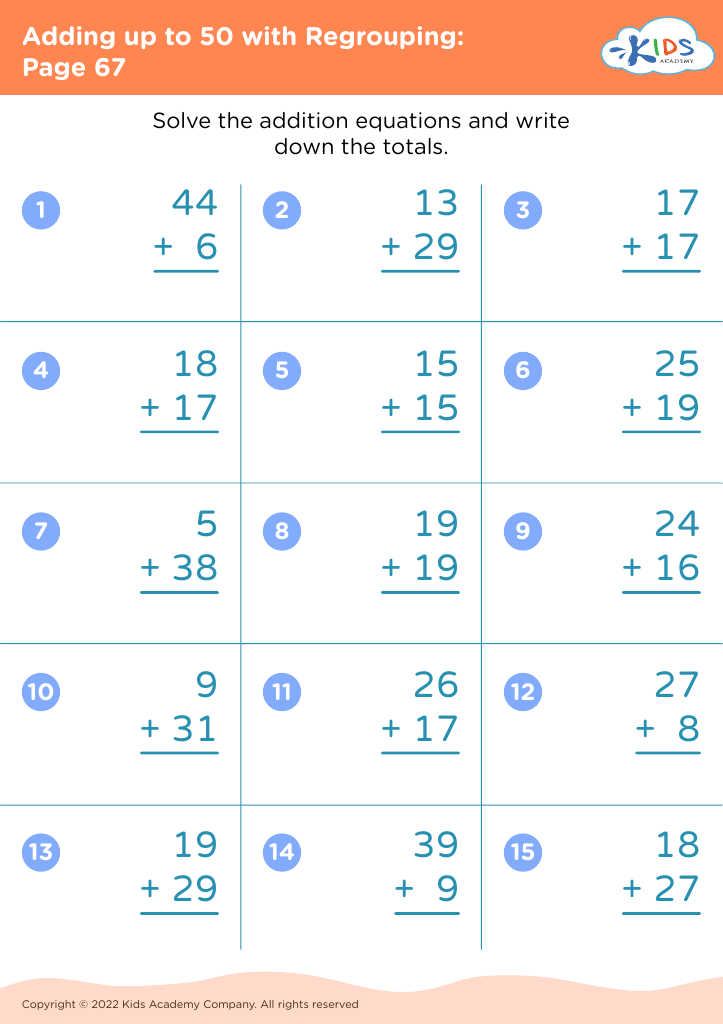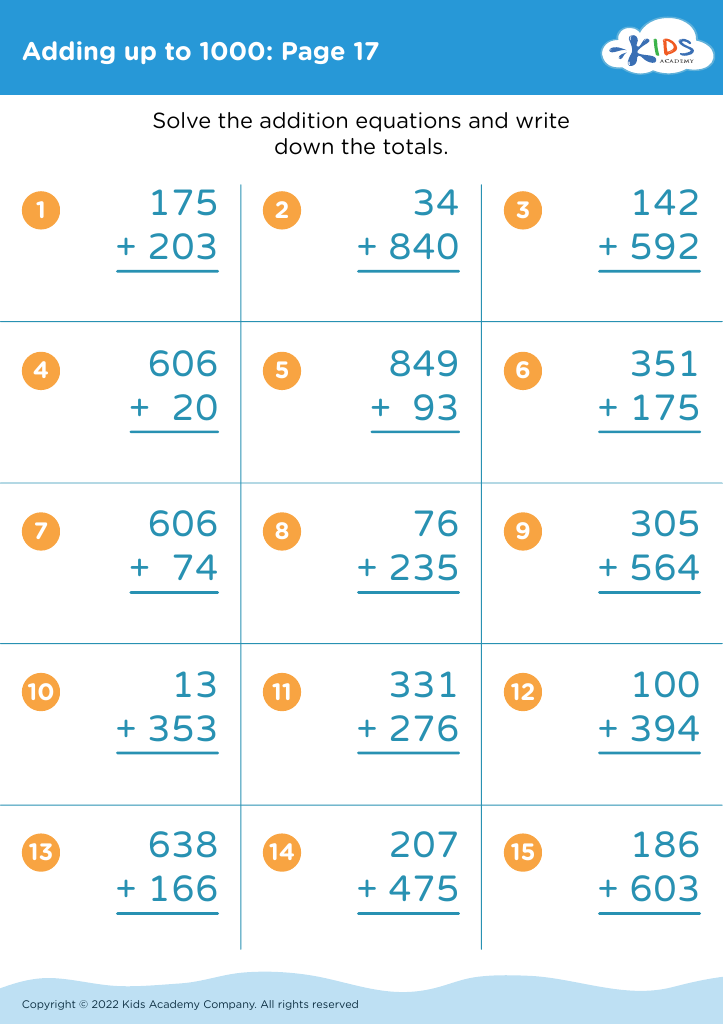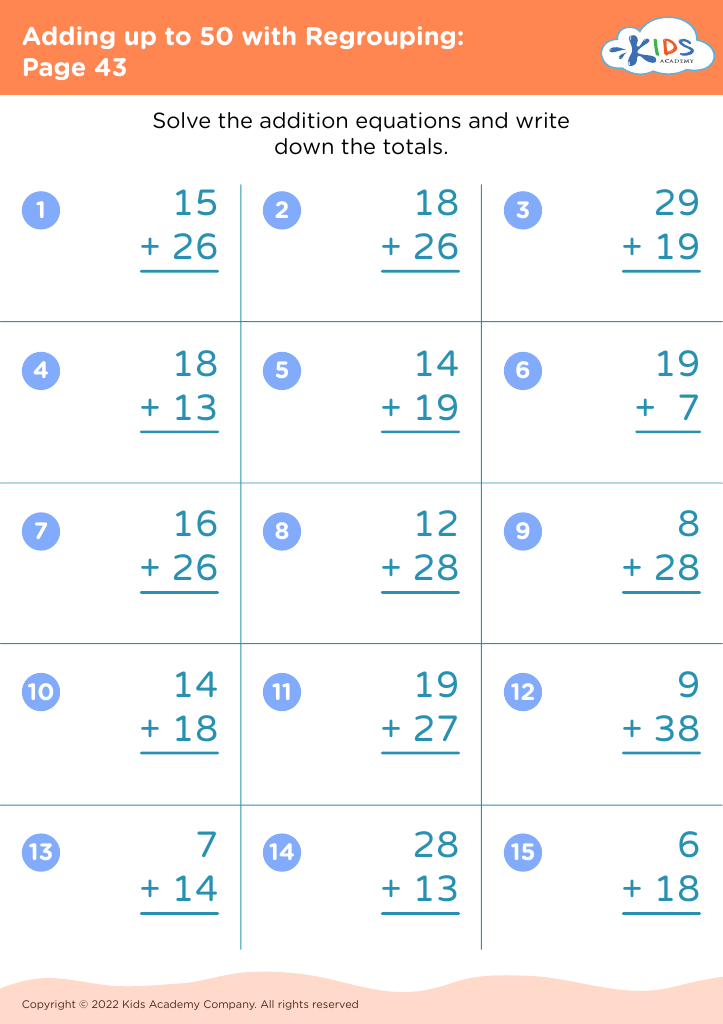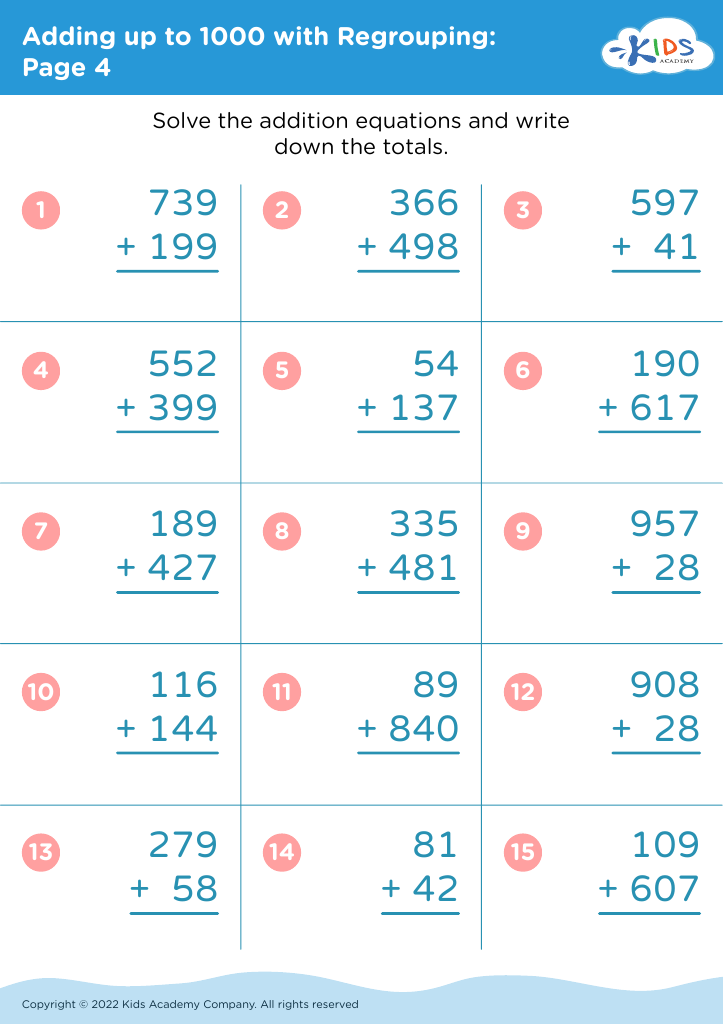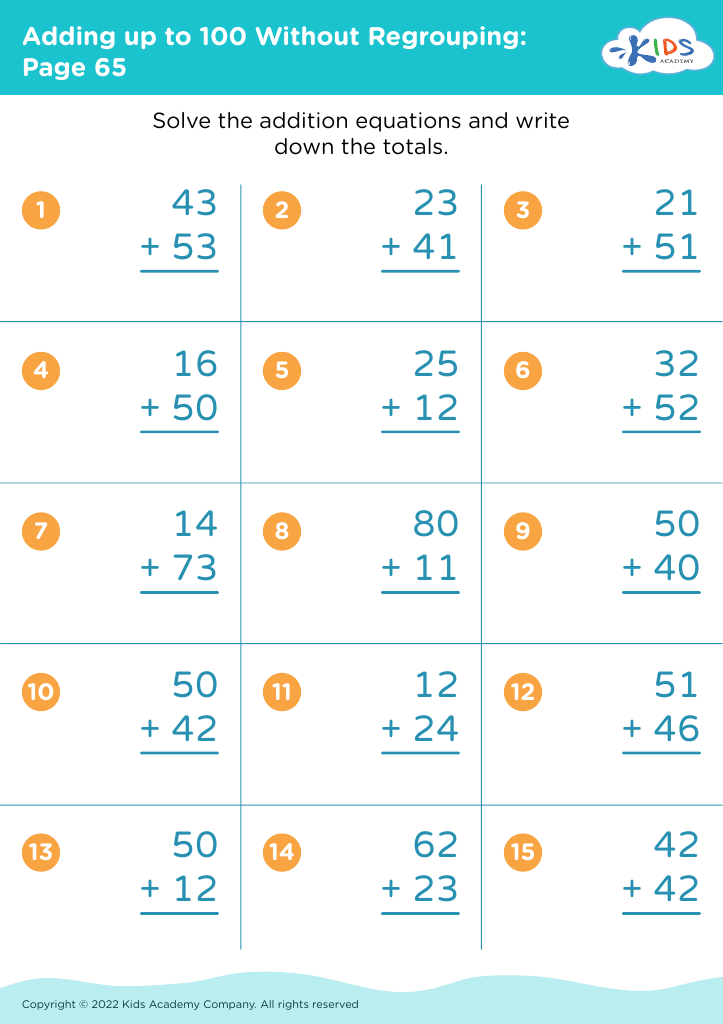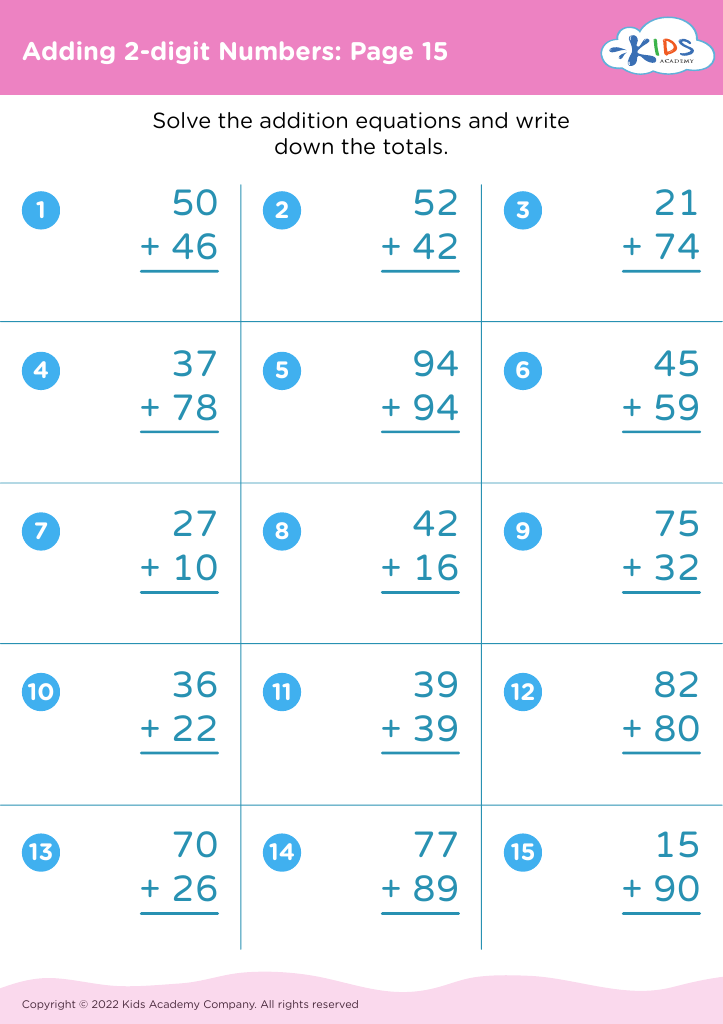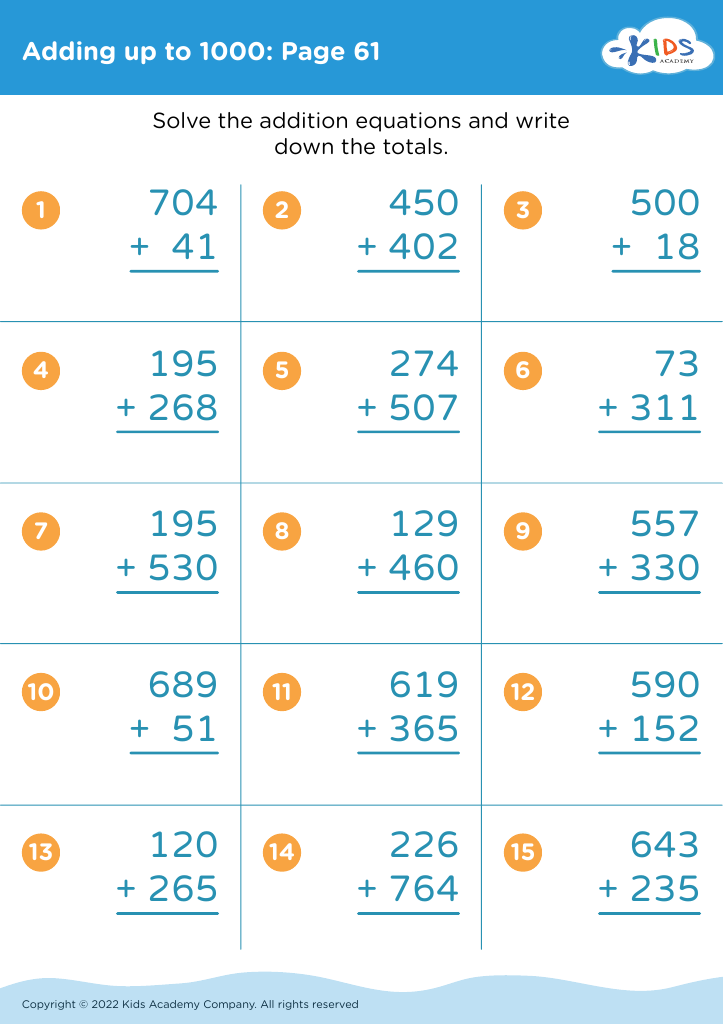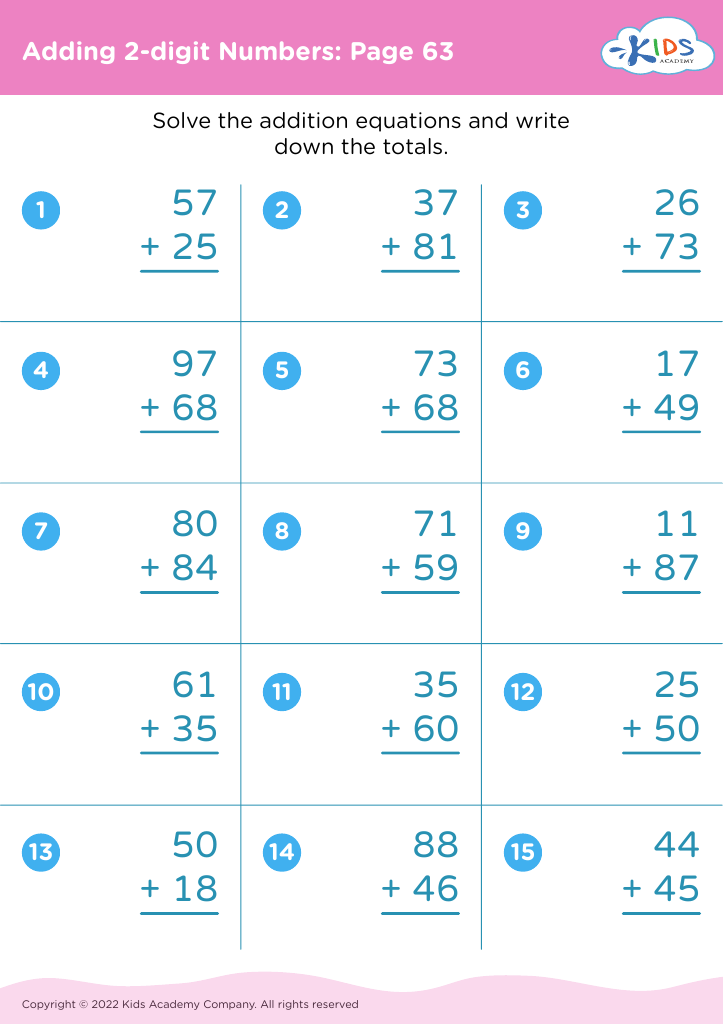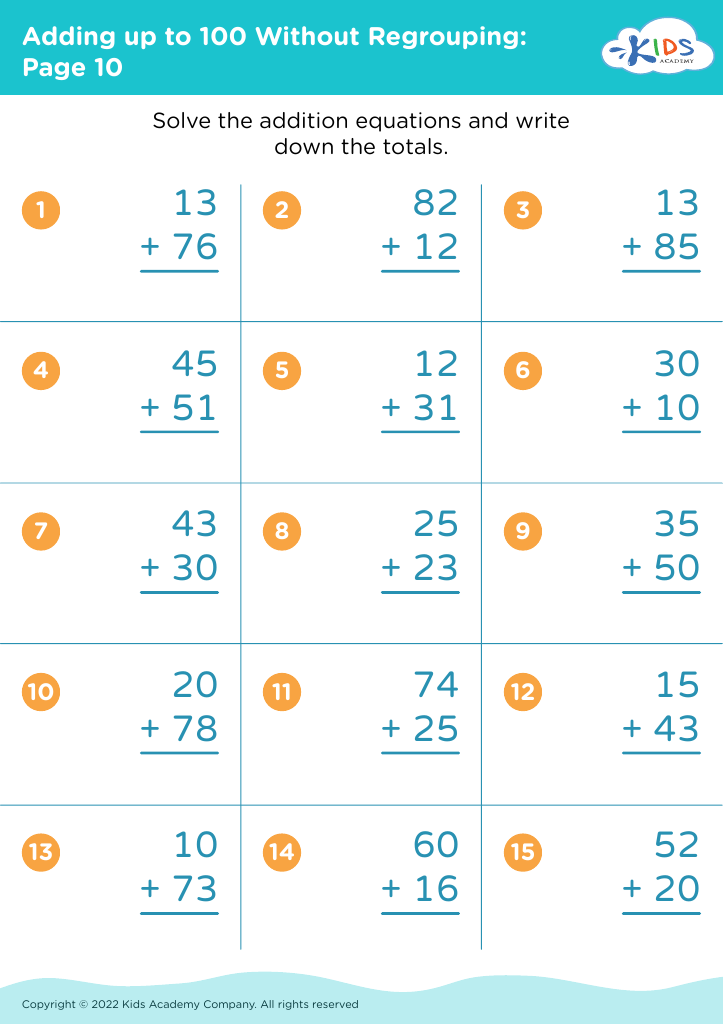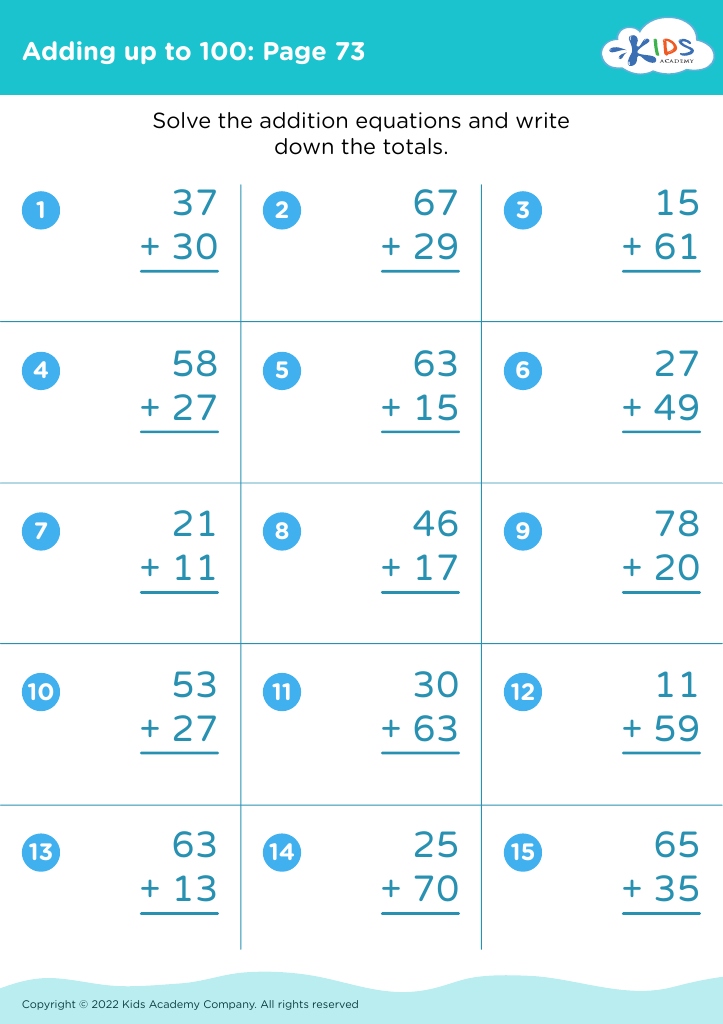Basic Math Skills Addition Worksheets for Ages 6-7
52 filtered results
-
From - To
Explore our engaging Basic Math Skills Addition Worksheets designed specifically for ages 6-7 at Kids Academy! These expertly crafted worksheets help young learners build a solid foundation in fundamental math principles. Your child will enjoy fun, interactive exercises that make mastering addition an exciting challenge. Each worksheet focuses on essential skills like single-digit addition, number bonds, and adding with visuals to boost confidence and accuracy. Perfect for both classroom and at-home practice, our worksheets align with educational standards to ensure your child is on the path to math success. Start boosting your child’s math skills today!
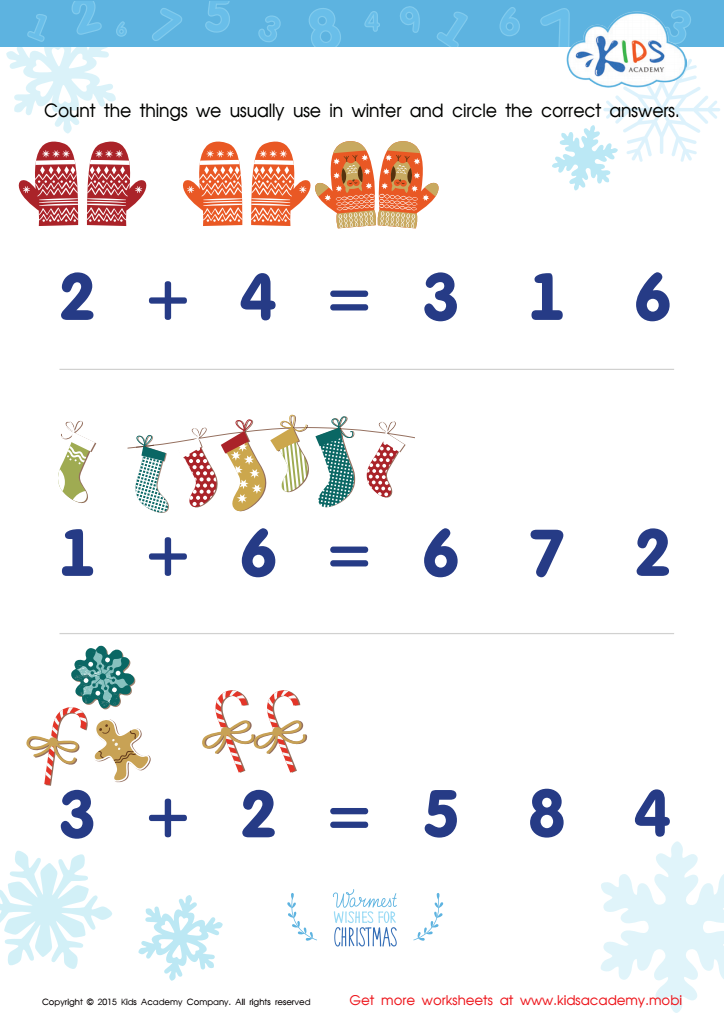

Count Winter Things Worksheet


Counting Seedlings Worksheet
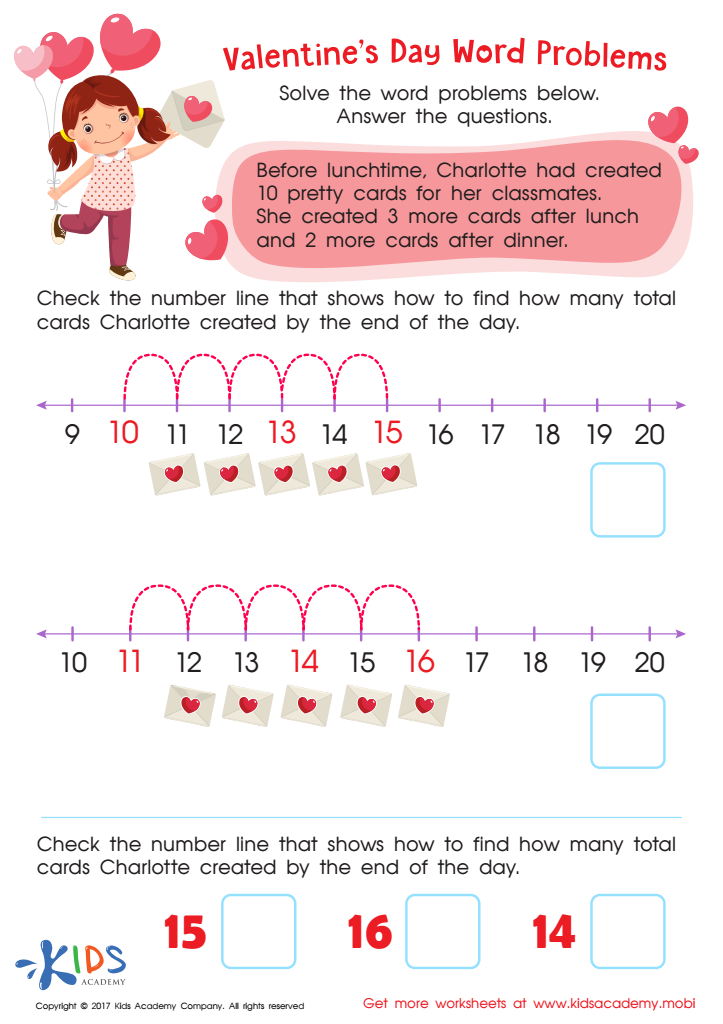

Valentines Day Word Problem Worksheet
Parents and teachers must prioritize basic math skills, such as addition, for children aged 6-7 because it sets a strong foundation for future academic success and everyday problem-solving abilities. Mastering addition at this age improves numerical literacy, making it easier for children to grasp more complex concepts in later grades, such as subtraction, multiplication, and division. This foundational knowledge facilitates confidence and reduces math anxiety, fostering a positive attitude towards the subject.
Moreover, early proficiency in addition enhances logical thinking and promotes cognitive development. By working with numbers, children learn how to think critically, recognize patterns, and develop strategies for problem-solving, skills that are crucial across various disciplines beyond math.
Developing strong addition skills also has practical everyday benefits. Whether calculating change, scheduling time, or understanding measurements, these skills directly apply to real-life scenarios, making children more independent and resourceful.
In short, focusing on basic addition nurtures essential cognitive skills, ensures academic readiness, and equips children with valuable life skills. Therefore, parents and teachers have a vested interest in the early development of math abilities to contribute to a child's well-rounded education and overall competence.


 Assign to My Students
Assign to My Students
